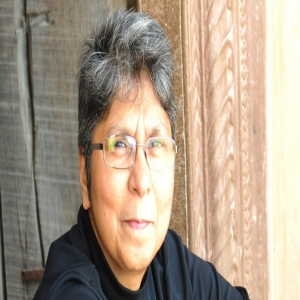
.png) Ram Puniyani
Ram Puniyani
.jpg)
The decade of the 1980s saw a drastic downturn in the direction of peace and progress. The communal forces found a new tool to instil hate by misusing the history related to our ancient holy places. There was a Rath Yatra led by Lal Krishna Advani for building a grand temple for Ram, "precisely" at the spot where Babri Mosque stood for over five centuries. In light of the rising tempo of this divisive issue, the Parliament passed an act in which the places of worship's nature and character could not be changed as existed on 15th August 1947.
The Supreme Court's judgment on the Babri mosque dispute case appreciated this law as essential to maintaining peace in the future. The act of demolition of Babri was declared a crime, and the judgment opined that there was no evidence of a temple below the mosque. An article in Sabrang says, "A top-notch archaeologist, Prof Supriya Varma, who served as an observer during the excavation of the Babri Masjid site in early 2000s along with another archaeologist, Jaya Menon, has controversially stated that not only was there "no temple under the Babri Masjid," if one goes "beyond" the 12th century to 4th to 6th century, i.e. the Gupta period, "there seems to be a Buddhist stupa."
At the time of the demolition led by the Hindu right wing, they shouted, "Yeh to kewal jhanki hai, Kashi Mathura baaki hai" (This is just the beginning; Kashi and Mathura will be next). A couple of years ago, the issue of Kashi Mathura was brought to the fore for surveying despite the Places of Religious Worship Act 1991 being in place. Justice Chandrachud opened the floodgates by opining that the act does not cover the survey and that Hindus have the right to know the ancestry of the place. This came as a big boost for Hindutva to distort history to further their agenda.
The forces had stated that if Ayodhya, Kashi and Mathura were given to them, they would close their demands for other places of Hindu worship lying under mosques. Currently, over 12 cases of surveys are pending in courts. Other issues like Kamaal Maula Mosque, Baba Budan Giri Dargah, Haji Malang Dargah and many more mosques are being pursued claims by Hindus. There is a long list. As Sambhal Jama Masjid came under the hammer, the centuries-old Ajmer Dargah is also being claimed by Hindu Sena, which has sprung up to claim more and more sites to be given over to Hindus.
In these cases, some doubtful documents are highlighted. In many of these, the damage done by the British is extensive: for example, Mrs Annette Susannah Beveridge, in the translation of Babur-nama, puts a footnote stating without any evidence that there might have been a temple underneath the mosque. Numerous reasons have been given for destroying temples, plundering wealth, and humiliating rival kings being the chief of them.
If we go a bit back in history, the primary cause of the destruction of Buddhist Viharas was religion. Swami Vivekananda shared, "The temple of Jagannath is an old Buddhist temple. We took this and others over and re-Hinduised them…". Swami Dayanand Saraswati, while describing the contribution of Shankaracharya in his tome, Satyarth Prakash wrote: "For ten years he toured all over the country, refuted Jainism and advocated the Vedic religion. All the broken images that are now-a-days dug out of the earth were broken in the time of Shankar, whilst those that are found whole here and there under the ground had been buried by the Jains for fear of their being broken."
According to the Buddhist narrative of ancient Indian history, the last of the Maurya dynasty's Buddhist king (Ashoka being one), Brihadratha, was assassinated by Pushyamitra Shunga, a Brahmin, in 184 BCE, thus ending the rule of a renowned Buddhist dynasty and establishing the rule of Shunga dynasty. DN Jha, an outstanding ancient Indian historian, referred to Divyavadana, a Buddhist Sanskrit work from the early centuries describing how Buddhist and Jain religious places were destroyed by Pushyamitra Shunga, a great Buddhist persecutor of Buddhists.
"He is said to have marched out with a large army, destroying stupas, burning monasteries and killing monks as far as Sakala, now known as Sialkot, where he announced a prize of one hundred dinars for every head of a Shramana (opposed to Vedas)."
Jha tells us that Mathura, a flourishing town in western Uttar Pradesh during the Kushana period, had some present-day Brahminical temples, such as Bhuteshwar and Gokarneshwar, which were Buddhist sites in the ancient period.
History, which is now part of popular "common sense," is propagated by Hindu nationalist forces. This evil is rooted in the British policy of 'divide and rule,' which promoted communal historiography. In this, the kings are presented as representatives of their religion. The focus is mainly on the medieval period when many Muslim kings ruled. During this period, many temples were plundered for wealth, and many others were demolished to humiliate the defeated kings.
What is forgotten and erased from memory is that even Aurangzeb gave donations to Hindu temples (Kamakhaya Devi temple and Mahakal temple in Ujjain being a few of them), and Hindu Kings like Raja Harshdev appointed a special officer (Devottapatan Nayak) to plunder the wealth of temples (Kalhan, Rajtarangini). Maratha kings destroying a temple in Srirangpanam is swept under the carpet. During this period, religion had very little role to play, unlike the post-Mauryan Period when Buddhist Viharas were targeted with an aim to root out Buddhism.
Indian politics and judiciary have opened Pandora's Box, deepening religious divides in society. What is the need of the hour? To search for temples underneath every mosque? Or to build "Temples of Modern India," as Pandit Jawaharlal Nehru defined them as he flagged off the construction of the Bhakra Nangal Dam? The direction that India chooses will define its destiny.